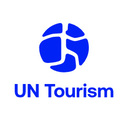UNWTO, Panama and NOAH Support Creation of UN Fund for the Climate Neutrality of Tourism
Within the framework of the United Nations Conference on Climate Change COP26, the World Tourism Organization (UNWTO), the Government of Panama and the business group NOAH agreed to work together for the implementation of the United Nations Fund for Climate Neutrality of Tourism. The Fund represents an innovative financing instrument promoted by UNWTO to respond to threats posed by the climate emergency.
In recognition of the existential threat posed by the climate emergency, UNWTO, the government of Panama and NOAH (Network of Ocean Ambassadors Headquarters) will support the creation of a Capital Fund that will make possible the UN Fund for the Climate Neutrality of Tourism and the creation of a Smart Carbon Exchange Market (MIIC). Led by NOAH together with UNWTO, this market aims to promote the exchange of carbon credits in the most efficient way.
Mobilizing resources
With this agreement, Panama ratifies its climate leadership and its efforts to conserve and regenerate nature and, at the same time, unleash economic growth through tourism that benefits local communities. Panama is one of only three carbon negative countries in the world - that is, it absorbs more greenhouse gases than it emits.
The Minister of Tourism of Panama, Iván Eskildsen, highlighted “the role of UNWTO in bringing together a leader in climate response like Panama, firmly committed to tourism as a pillar for the future of people and the planet, and NOAH that will contribute technological and financial solutions to mobilize the necessary resources for a sustainable future for the benefit of all.”
"These projects reflect UNWTO's commitment to transform the tourism sector to accelerate the decarbonization of the sector," said UNWTO Secretary General Zurab Pololikashvili. He stressed that this is an example of success based on cooperation between “the UN system, international organizations, UNWTO Member States and the private sector in general”.
Towards “Blue Carbon”
With Panama serving as a pilot country for these initiatives, NOAH will prepare a study in coordination with the Ministry of the Environment to estimate the “blue carbon” reserves in mangroves and seagrasses in protected areas of the country, as well as the reserves of carbon in wetlands.
For his part, the founder of NOAH, Frederic Degret, confirmed that “to articulate this great project, Panama will host the international headquarters of an Intelligent Carbon Exchange Market, as we have agreed in the Memorandum of Understanding signed between UNWTO and NOAH.”
The UNWTO, NOAH and Panama ensure the transition to a tourism sector with net zero emissions and focused on improving people’s lives.
RELATED LINKS
About UN Tourism
The World Tourism Organization (UN Tourism) is the United Nations agency responsible for the promotion of responsible, sustainable and universally accessible tourism.
As the leading international organization in the field of tourism, UN Tourism promotes tourism as a driver of economic growth, inclusive development and environmental sustainability and offers leadership and support to the sector in advancing knowledge and tourism policies worldwide.
Our Priorities
Mainstreaming tourism in the global agenda: Advocating the value of tourism as a driver of socio-economic growth and development, its inclusion as a priority in national and international policies and the need to create a level playing field for the sector to develop and prosper.
Promoting sustainable tourism development: Supporting sustainable tourism policies and practices: policies which make optimal use of environmental resources, respect the socio-cultural authenticity of host communities and provide socio-economic benefits for all.
Fostering knowledge, education and capacity building: Supporting countries to assess and address their needs in education and training, as well as providing networks for knowledge creation and exchange.
Improving tourism competitiveness: Improving UN Tourism Members' competitiveness through knowledge creation and exchange, human resources development and the promotion of excellence in areas such as policy planning, statistics and market trends, sustainable tourism development, marketing and promotion, product development and risk and crisis management.
Advancing tourism's contribution to poverty reduction and development: Maximizing the contribution of tourism to poverty reduction and achieving the SDGs by making tourism work as a tool for development and promoting the inclusion of tourism in the development agenda.
Building partnerships: Engaging with the private sector, regional and local tourism organizations, academia and research institutions, civil society and the UN system to build a more sustainable, responsible and competitive tourism sector.
Our Structure
Members: An intergovernmental organization, UN Tourism has 160 Member States, 6 Associate Members, 2 Observers and over 500 Affiliate Members.
Organs: The General Assembly is the supreme organ of the Organization. The Executive Council take all measures, in consultation with the Secretary-General, for the implementation of the decisions and recommendations of the General Assembly and reports to the Assembly.
Secretariat: UN Tourism headquarters are based in Madrid, Spain. The Secretariat is led by the Secretary-General and organized into departments covering issues such as sustainability, education, tourism trends and marketing, sustainable development, statistics and the Tourism Satellite Account (TSA), destination management, ethics and risk and crisis management. The Technical Cooperation and Silk Road Department carries out development projects in over 100 countries worldwide, while the Regional Departments for Africa, the Americas, Asia and the Pacific, Europe and the Middle East serve as the link between UN Tourism and its 160 Member States. The Affiliate Members Department represents UN Tourism's 500 plus Affiliate members.
UN Tourism Communications Department
+34 91 567 8100
UN Tourism
